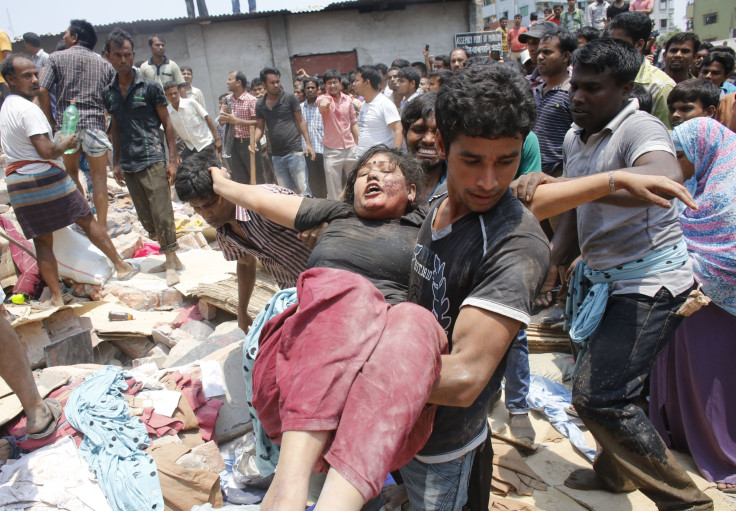Dying For Commerce: Bangladesh Building Collapse Renews Worker Safety Concerns In Developing World

Wednesday’s building collapse in Bangladesh brings to light, once again, the plight of low-wage workers in unregulated parts of the world.
Merely five months ago, in November 2012, a massive fire in a garment factory near Dhaka, the capital of Bangladesh, killed 110 people. A month after the Dhaka fire, 17 more similar incidents were reported in Bangladeshi textile and garment factories, Bloomberg reported. Previously, in September 2012, a fire in a Pakistani factory killed 300 people. In 2005, again in Bangladesh, 64 workers were killed in another building collapse.
The rapid growth of factories in Bangladesh and developing countries has been cited as a boon for those nations, the New York Times reported. The high demand for clothes in the first world and rising production costs in places like China have caused a massive shift of factories to countries with low-cost labor like Bangladesh in the past decade, allowing for increased upward mobility for people normally destined for destitution.
On the flip side, the rapid industrialization has created a situation much like early-20th-century New York: overcrowding, weak regulation of industry and the demand for improved products-- all of which produces a volatile safety situation.
Following the November 2012 fire, there were various calls for increased regulation and more safety measures. Global March, an anti-child labor nongovernmental organization, released a statement at the time saying that more than 700 garment workers have been killed in Bangladesh in similar circumstances since 2005.
“Garment workers’ safety seems to be of nobody’s concern,” said Kailash Satyarthi, chairperson, Global March Against Child Labour, in the statement. “Neither the apparel retailers take proper remedial or pre-emptive actions to ensure that such untoward incidences do not occur at their sourcing hubs, nor do the government agencies in Bangladesh wake up to assume their responsibilities for ensuring decent working conditions and basic safety for the workers.”
Global March, based in New Delhi, could not immediately be reached for a comment on the most recent incident.
According to Alonzo Suson, Bangladesh director for the American Center for International Labor Solidarity, Wednesday’s disaster was yet another example of poor government oversight in the wake of increased demand for more factories and more output.
“It is substandard construction, shortcut construction,” he told the Times. “There was already a crack in the building.”
But the West continues to prop up development there. “Bangladesh is the way it is because they have been rewarded by the industry,” Scott Nova, executive director of the Washington-based Workers Rights Consortium, told the Washington Post at the time. “It has the worst labor rights record, lowest wages and most dangerous factories. And the response of big Western retailers has been to pour more business into the country. The message to factory owners: Keep doing what you’re doing.”
© Copyright IBTimes 2024. All rights reserved.





















